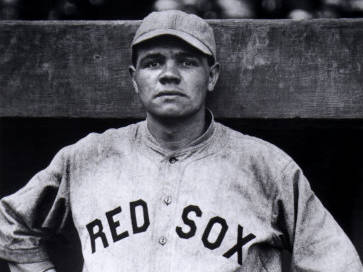Before I was born, my dad ran for local office and got to speak at a 1960 rally where he introduced the speaker who introduced Republican presidential candidate Richard M. Nixon.
Nixon was then vice president, but that’s not the cool part of the story or why Dad is still rightly proud to have shared that podium. The cool part of the story is the guy he introduced: Jackie Robinson.

In 1960, Jackie Robinson was a Republican. That was still possible in 1960, still conceivable. In 1960, President Eisenhower, like Teddy Roosevelt before him, still was able to make the claim that he was the leader of “the party of Abraham Lincoln.” He was the last Republican president who could plausibly say that. And apart from empty platitudes ritually repeated, he was the last Republican president who seemed at all interested in saying that.
Nixon lost in 1960, but he won in 1968 due in part to his “Southern Strategy” designed to peel off the white racist vote that had been a mainstay of the Democratic Party since before the Civil War. In 1968, those votes were there for the taking, since President Lyndon B. Johnson repudiated everything that President Andrew Johnson stood for by signing into law the Civil Rights Acts of 1964 and 1965.
“We have lost the South for a generation,” LBJ said. He wasn’t wrong.
The 1960s completed the weird reversal of America’s two political parties. The Radical Republicans brought about a second American revolution with the 13th, 14th and 15th Amendments. They were committed to a strong, large federal government, to public education and to expanded voting rights. A century later, Republicans were adamantly opposed to all of those things.
Today, if you hear a politician railing against public schools, or calling for voting restrictions, or for a smaller and weaker federal government, you know without looking that this politician is a Republican. Today if you hear a politician attacking due process, or citizenship for all born here, or equal protection, then you know without looking that this politician belongs to the party that bears the same name as the party that fought to enshrine all those things in the Constitution.
We all know this. I’m not saying anything new here. But on some level it’s still jarringly strange to consider how totally and fundamentally the parties switched places from Johnson to Johnson.
We hear people say “the party of Lincoln” and we know it’s a true statement of historical fact. But given the reversal of the two parties, remembering Abraham Lincoln as a Republican is as strange as remembering Babe Ruth as a player for the Red Sox. That’s what he was, but then he got traded. The GOP traded Lincoln to the Democrats for Strom Thurmond, Ronald Reagan and a tea party to be named later.
This is all prompted by a post today from Richard Beck on “Race, Politics, and Christianity in the American South.”
What changed in the South? When did the South go from being strongly Democratic to being strongly Republican? The story can be summed up by looking at two electoral maps separated by a mere eight years …
















